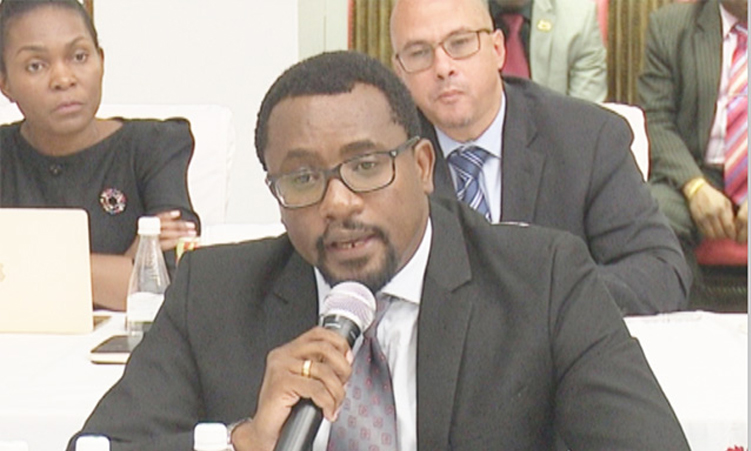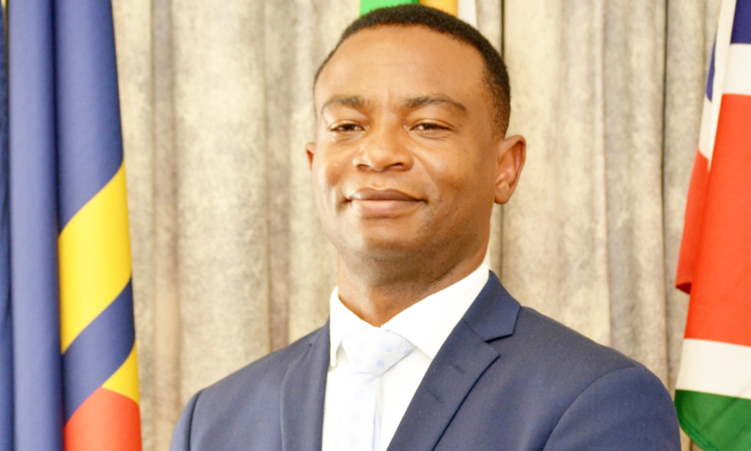Over two thousand unemployed young people have been flocking to the Rundu Town Council since 2 November to apply for temporary work offered by the council.
A notice was sent out on 2 November, calling for people qualified in various fields to apply.
The invite called for applicants to be entered on the council’s database for possible temporary work opportunities in the 2023/24 financial year in various fields, such as information and technology (IT), communication and public relations, marketing and tourism, economics, accounting and finance.
Rundu Town Council chief executive Olavi Nathanael yesterday said the council is creating a database of temporary workers.
“There are different categories and they will be grouped as per the categories they apply for, and when we need temporary workers, we just go to the relevant category and pull from there,” he said.
Other fields include auditing and risk management, human resource management, public administration, office administration, town planning, engineering (civil and mechanical), property and land administration, and building and electrical.
The deadline for the submission of applications was yesterday.
Some applicants were, however, under the impression the council’s notice was for full-time employment.
NO POLITICS, NO VOTING
One of the applicants, from the International University of Management (IUM), who graduated in 2018, said she has not secured employment since graduating six years ago.
“Town council temporary posts may help recruit several unemployed graduates, but from experience, I don’t think it will be a fair pick. Why does it have to be temporary?” the applicant, who prefers to remain anonymous, asked.
Meanwhile, Magnus Sivera has a master’s degree in electronic and communication engineering, and a bachelor’s degree in electronic information engineering, which he obtained in China in 2016 and 2019, respectively, through a government scholarship.
He said since graduating, he has not secured any type of employment, especially in his field of study, nor has he received any assistance from the government since graduating.
“What I suggest the government can do is to stay engaged with industries, especially when it comes to employment opportunities, and make sure everybody who was supported through government scholarships gets absorbed in the government, or makes provision to get employed by the private sector as soon as they graduate,” Sivera said.
He said it does not make sense for the government to send people to obtain qualifications in foreign countries, while there is no plan for recruitment or entrepreneurial opportunities upon graduation.
“Unemployment among the youth is a problem. This started long ago, and this is what makes the youth feel neglected by the government. And when it’s time for elections, they want us to vote,” said Mathias Sikondo.
He said unemployment is the reason why young people do not engage in politics or vote during elections.
“Why should I vote if the government has forsaken us?” he asked.
Sikondo graduated from the Namibian Training and Fisheries Institute at Walvis Bay in 2019 with a qualification in electrical engineering.
“The government should work with non-governmented organisations to see how they can come up with a model to solve unemployment. Luckily, I can sometimes fix someone’s stove or microwave, but it is not sustainable,” he said.
The register indicates that more than 3 000 temporary jobseekers have submitted their applications for consideration.
Patrick Kamonga (33), a cabinet maker, yesterday said: “It’s not a post that is vacant, but we came to give our names to be placed on their database in case they are going to have our type of job,” he said.
Kamonga said he graduated in 2015.
“If I don’t secure a tender, it’s like the Government Gazette doesn’t apply here in the Kavango region. I don’t see why the construction industry in the Kavango region is treated differently from other regions,” he said.
He said builders are paid a different rate in the Erongo region.
NATIONAL CRISIS
More than 2 000 unemployed young people in Windhoek flocked to a local club in March, where they submitted their CVs to be considered for 16 advertised positions.
Popular Democratic Movement (PDM) member of parliament Inna Hengari last year moved a motion to declare unemployment a national crisis.
She argued that policy implementation shortfalls, a lack of investment in youth-run small and medium enterprises, a skewed education system and corruption have led to the high youth unemployment rate.
The Namibia Labour Force Survey conducted by the Namibia Statistics Agency in 2018 found Namibia has 876 908 young people between the ages of 15 and 34, of which 310 854 (35,4%) were employed, and 265 770 (30,3%) were unemployed.
“These high rates of youth unemployment represent both widespread personal misfortune for individuals, and a lost opportunity for critical national and global economic development,” she said.
Stay informed with The Namibian – your source for credible journalism. Get in-depth reporting and opinions for
only N$85 a month. Invest in journalism, invest in democracy –
Subscribe Now!










